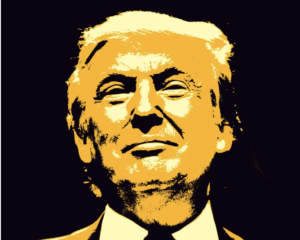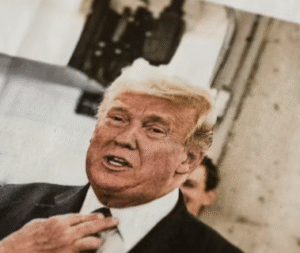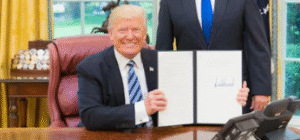#DonaldTrump #KamalaHarris #TariffPolicy #PriceGouging #USPolitics #EconomicPolicy #Corporations #TradeWars
In the ever-evolving tapestry of US politics, financial policies and economic strategies often become pivotal battlegrounds. The latest discourse involves two notable figures: former President Donald Trump and Vice President Kamala Harris, each advocating for distinct approaches to what they perceive as economic challenges facing the nation. Trump is revisiting a familiar rhetoric from his presidency, proposing a hardline tariff policy. This policy, known for its assertiveness, is aimed at protecting domestic industries by imposing taxes on imported goods, thereby encouraging American manufacturing and potentially leading to trade wars with countries targeted by the tariffs.
On the other side of the political spectrum, Vice President Kamala Harris has taken a strong stance against corporate America, criticizing what she describes as “price gouging.” Her criticism is directed towards corporations that significantly increase the prices of their products beyond what is considered fair or reasonable, often during times of crisis or amid inflationary pressures, exploiting consumers and small businesses. Harris’s condemnation of such practices highlights a broader concern regarding corporate responsibility and ethics in pricing strategies, especially in sectors essential to everyday life like healthcare, technology, and basic consumer goods.
The contrast in approaches between Trump and Harris underscores a fundamental debate in US economic policy: the balance between protectionism and free-market principles. Trump’s tariff-centric strategy represents a more isolationist, protectionist stance, aiming to bolster domestic industries but potentially at the cost of straining international relations and increasing prices for consumers due to retaliatory tariffs and reduced competition. On the other hand, Harris’s focus on fighting price gouging speaks to a call for greater oversight and regulation of corporate practices, ensuring fairness and protecting consumers from exploitative pricing.
These differing views not only reflect the ideological divides within American politics but also harken to a larger dialogue about the direction of the US economy. As debates over tariffs, corporate regulation, and economic policies continue, the outcomes of such discussions will likely have significant implications for global trade dynamics, domestic economic growth, and the everyday lives of American consumers. The resolution of these contentious issues remains to be seen but will undoubtedly be critical in shaping the economic landscape in the years to come.







Comments are closed.